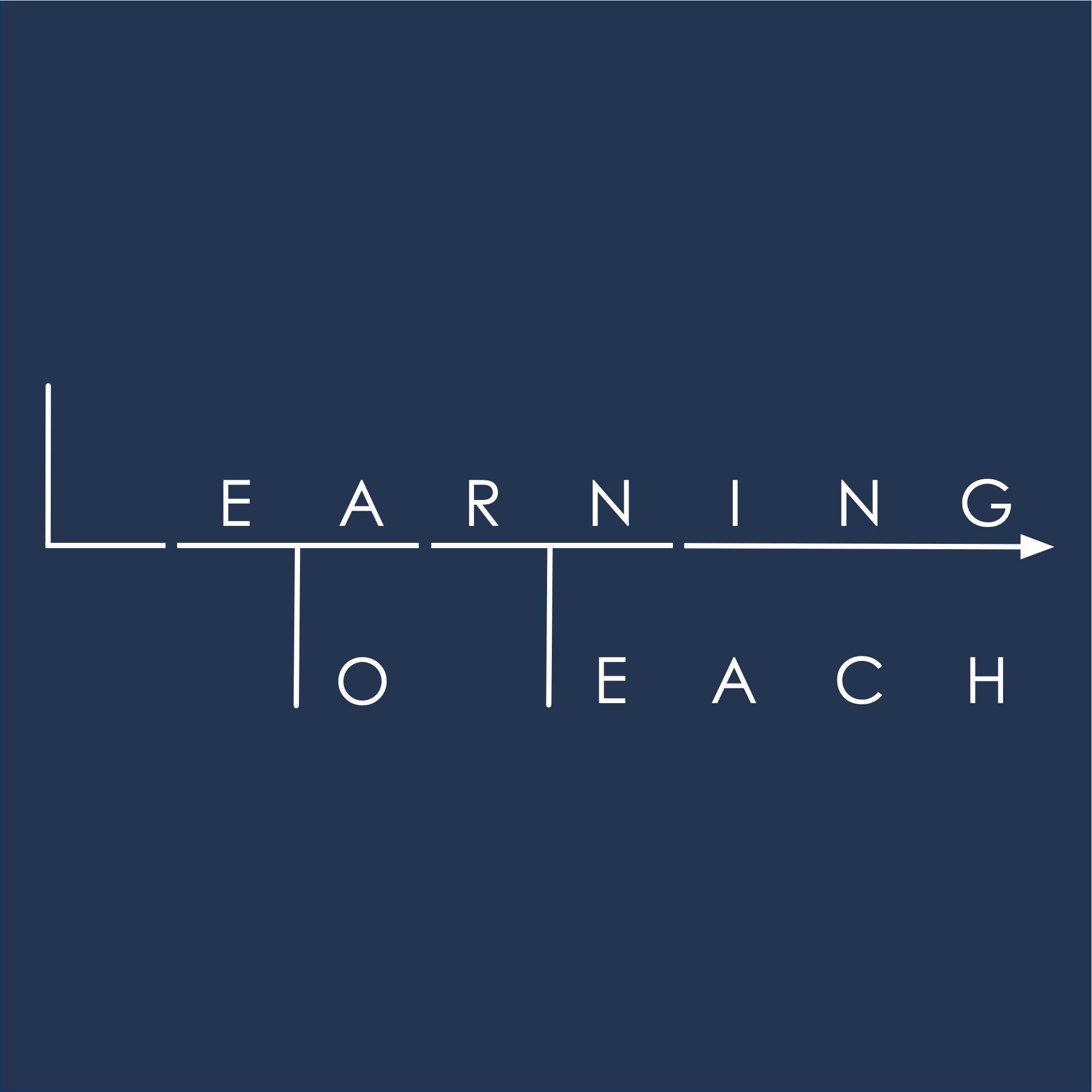
A Reminder About Classroom Culture
Today, my first day back in a physical classroom in 14 months, was a reminder for me just how much it matters that we intentionally craft the emotional and social environment we want our students to walk (or log) into.
For several weeks now I've been planning a post on classroom culture, which is a pretty big topic on which I am admittedly not an expert. I'm reading and researching and will circle back to this in the future. But today, rather monumentally, my school began Hybrid learning, and it was my first day teaching in a physical classroom with students in over a year, and I was reminded of what it actually feels like to participate in a classroom culture, and the emotion and excitement of being there with students is still resonating with me.
My own understanding of a classroom culture grew out of an observation I made in my first year teaching, which was that each different group of students had a wildly different emotional "valence," or just a different feeling in the room. As a middle school teacher, I teach the same class to many different sections, and while I didn't personally change and neither did the curriculum, some of my sections were joyous, others were boisterous, others felt bored (or boring), and others downright spiteful. My ad-hoc take on this is that each individual in the room contributes to an overall group dynamic; I've seen the difference that adding or removing just one student can make in the way a group feels.
This feeling is what I mean when I talk about classroom culture. I do think it comes predominately from the diversity of personalities in a group of 20-25 people that become a small community over the ten months they spend together. However, I also think that one of our main roles as teachers is to ensure that community is one of kindness, respect, and safety, as well as one of academic rigor and curiosity. When students walk into my classroom, I want them to feel comfortable taking risks, asking questions, making mistakes, and also being themselves - I mean that in a very tangible way, referring to the actual feeling of walking into the room, into a space, and that's what I think classroom culture is.
Developing a culture in which students feel like they can learn and be themselves takes work and intentionality. On the other hand, anyone who's read my writing knows how strongly I feel that everything we do in the classroom should feel authentic and clearly contribute to whatever outcome it's in service of, and I feel awfully self-conscious standing in front of a group of kids and asking them to sit quietly while I lecture and explain to them how our community will run. Of course, I still recognize the importance of messaging and modeling the behavior of a respectful and mature participant in a strong classroom community. One of my biggest struggles as a teacher and a group leader has been balancing the authentic with the new, and finding the sweet spot in which a positive, productive, safe, and fun community can develop and thrive organically - and it continues to be a struggle for me, even today as I welcomed small groups of 12 kids into my undecorated classroom, I felt conflicted between pressuring students to finish their work (it was a graded final reflection assignment, a pretty big deal) and letting them live out in real life the relatively informal, open-chat community we've had on Zoom up to now. We can't decorate the walls because we share classrooms - it's fine this year, but the posters and record albums that go up on my walls are chosen with an eye toward the decolonization of the curriculum experienced by my students, and I chose very intentionally who is venerated and held up as a positive example, which also shapes the culture of my classroom.
Generally, I land on the side of "Relationships before Rigor" (a phrase I first heard from Brad Johnson and one that succinctly sums up just about everything I think about teaching). Today, I didn't sit them down and give them a long (or short) talk about how our class community would run now that some of us were in-person, because what matters most to me is that we maintain the really positive, cheerful but also productive community we've had up until now and that grew organically out of thousands of tiny interactions I've had with students and they've had with each other. I think some of my students were surprised that I wasn't more strict - that I didn't become angry when some people talked during work time, or that I engaged some of the seemingly unrelated questions that they saw other students asking me in a room that, I presume, they expected to feel much more locked-down socially. I could probably have done a better job keeping my students from distracting one another, but I followed up with them afterward and reached out to families as necessary (not that my room was in chaos, or even unproductive - actually, more students submitted complete assignments than any previous reflection we've done this school year, all of which were done virtually).
There's a lot we can do to shape our classroom culture, and I have more to say (and write) on this, and I will. But today, my first day back in a physical classroom in 14 months, was a reminder for me just how much it matters that we intentionally craft the emotional and social environment we want our students to walk (or log) into. It didn't go perfectly, but like I said, I'm still finding the balance.
Can Teachers Find A Better Term Than "Relationships?"
“The secret isn't in the development of the individual relationships themselves; it's in the mindsets, the attitudes, the way we respect our students and value their voices each day that can create an environment, a classroom culture of tolerance, empathy, and open-mindedness in which authentic relationships can be formed.”
Teachers, especially new teachers, are bombarded with buzzwords, and perhaps the one that comes up the most is "relationships." I've heard the term at every PD I've ever attended; I myself use it liberally and even hosted an episode of the Modern Classrooms Podcast on the topic.
When I was a brand new teacher, this was one of the buzzwords I most struggled to decode and translate from theory into practice. As a pretty mediocre (to put it very, very kindly) first year teacher, I didn't really understand how I was expected to forge "authentic relationships" with over 180 different kids, many of whom really didn't like me. Relationships take time; they require trust and commitment from both parties, and being told to undertake that journey with 20 different young people at the same time, five times a day, while also teaching content, was not only daunting but also demoralizing as I constantly found myself grasping for control or getting into petty arguments with kids, utterly failing to develop anything resembling positive relationships.
I wonder if the term "relationships" is part of the problem here. I'm at a point in my career where I understand what is meant by that term, but I also remember the feeling of emotional overwhelm around how to build up so many relationships in such a short time, again and again, year after year. Perhaps the focus on the individual relationships between teacher and students has us missing the forest for the trees - some students will resist relationships with some adults, and this is something we can't control, so the term itself establishes a fail-state. What we can control, however, is our attitudes and the way we interact with our students in general, and we can measure our progress here by our own actions rather than staking our success (or failure) on the particular relationships we develop with each student.
The secret isn't in the development of the individual relationships themselves; it's in the mindsets, the attitudes, the way we respect our students and value their voices each day that can create an environment, a classroom culture of tolerance, empathy, and open-mindedness in which authentic relationships can be formed. I can't control who chooses to form a positive relationship with me, but I can control my attitude and broader approach to interacting with the young people who, for better or worse, learn from me as I model positivity and emotional maturity, and respond best, just like we all do, to kindness and warmth.
I've made relationship-building my central focus, and the defining aspect of my identity as a teacher, because I've seen how beneficial positive interactions with students can be (as well as the importance of modelling active listening and positive ways of dealing with disagreement). Kids seem to like me and my class, despite the fact that my curriculum is rigorous and my grading is unforgiving, which I think speaks to the incredible value of sheer, unrelenting kindness. This isn't something that comes intuitively to young teachers who just want to be popular. We all want our students to like us and our class, of course, but when we're more focused on getting our awesome content into the kids' brains than on hearing and valuing whatever is in those brains already, we wind up, despite our best intentions, grasping for straws amidst a large group of people who want remarkably little to do with us.
What shall our new buzzword be, then? What umbrella term can encompass those strong relationships we develop with kids but also the broader mindsets we adopt in order to transform our classrooms into positive environments where they can flourish? "Kindness" does the trick, but it doesn't have the same buzzword-worthy ring to it, since kindness is a virtue in all walks of life. But then again, our classrooms are no different from the rest of the world, and our students are just as deserving of kindness as anyone else in our lives. As we gather experience and learn to forge positive relationships with our students, perhaps we can broaden our horizon and take notice of how we're able to forge those relationships, and the conditions that make them possible, so that new teachers can better learn that kindness and respect should be a higher priority, a more central focus, than any individual relationship.
